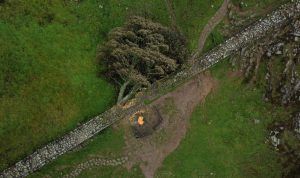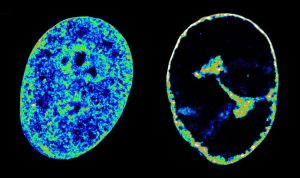All of us hold metaphysical beliefs, whether we realise it or not. Learning to question them is spurring progress on some of the hardest questions in physics
Metaphysics has something of an iffy reputation. “I think a lot of people think it’s a complete waste of time,” says philosopherStephen Mumfordat the University of Durham, UK, author ofMetaphysics: A very short introduction. “They think it’s all just arguing over pointless questions, like, classically, how many angels could dance on the head of a pin?”
It isn’t difficult to see why. Classical metaphysics – the term comes from the Greek “meta”, meaning beyond – does ponder some bizarre-sounding questions. What is a table, for instance? What form of existence do colours have? In addition, it does so through reasoning alone, with tools such as “reductio ad absurdum” – a mode of argumentation that seeks to prove a claim by deriving an absurdity from its denial. It is a far cry from the empirical knowledge scientists pursue through observation and experiment.
But the idea that metaphysics is all just abstract theorising with no basis in reality is a misconception, says Mumford: “Metaphysics is about the fundamental structure of reality beyond the appearances. It’s about that part of reality that can’t be known empirically.”
Indeed, as modern science has expanded its reach into territories that were once seen as the purview of metaphysics, such as the nature of consciousness or the meaning ofquantum mechanics, it has become increasingly clear that one can’t succeed without the other.
To see why, the first thing to understand is that everyone has metaphysical beliefs, saysVanessa Seifert, a philosopher of science at the University of Bristol, UK. You probably believe objects exist when we aren’t looking at them, for instance, even though there is no hard and fast empirical evidence that this is true.
Read moreWhat does quantum theory really tell us about the nature of reality?
What does quantum theory really tell us about the nature of reality?
It is also important to recognise that there is such a thing as “naturalised metaphysics”, which is distinct from classical metaphysics in that it is informed by science, says Seifert. “You look at what science tells us about the world, and you investigate how literally you can take that.”
This brand of metaphysics provides a vital service for science because it examines the assumptions underlying our attempts to understand the world. “In many cases, metaphysical beliefs are the fundamental bedrock upon which empirical knowledge is built,” says Mumford.
Take causation – the idea that effects have causes – which we all believe despite the fact that causal connections aren’t observable. “Basically, the whole of science is premised on this metaphysical notion of causation,” he says.
These days, scientists routinely grapple with all manner of other concepts that are deeply infused with the metaphysical. From chemical elements, space and time to the concept of species and the laws of nature themselves – plus loads more.
How to wrap your head around the most mind-bending theories of realityFrom the many worlds interpretation to panpsychism, theories of reality often sound absurd. Here’s how you can figure out which ones to take seriously
How to wrap your head around the most mind-bending theories of reality
From the many worlds interpretation to panpsychism, theories of reality often sound absurd. Here’s how you can figure out which ones to take seriously
We have a choice, says Mumford. We can either scrutinise our metaphysical beliefs for their coherence or ignore them. “But in the latter case, we’re just assuming them unreflectively,” he says.
One of the most striking cases in which science and metaphysics collide isquantum mechanics, which describes the world of atoms and particles. It is a hugely successful scientific theory, yet when grappling with its meaning, physicists must confront metaphysical questions, like how we should interpretquantum superpositions, the apparent ability of a quantum system to exist in multiple states simultaneously.
Here, all we have are competing interpretations of what is actually going on that won’t submit to experimental testing, and it is becoming clear that progress will be impossible without confronting our hidden assumptions. To do so, some researchers have recently begun to revive a tradition known as “experimental metaphysics”, in which they test the coherence of the metaphysical beliefs underlying the various interpretations of quantum theory.
“In the end, you can’t do physics without metaphysics,” saysEric Cavalcantiat Griffith University in Brisbane, Australia, one of the foremost proponents of this approach. “You have to deal with both at the same time.”
Receive a weekly dose of discovery in your inbox!
We'll also keep you up to date withNew Scientistevents and special offers.
















